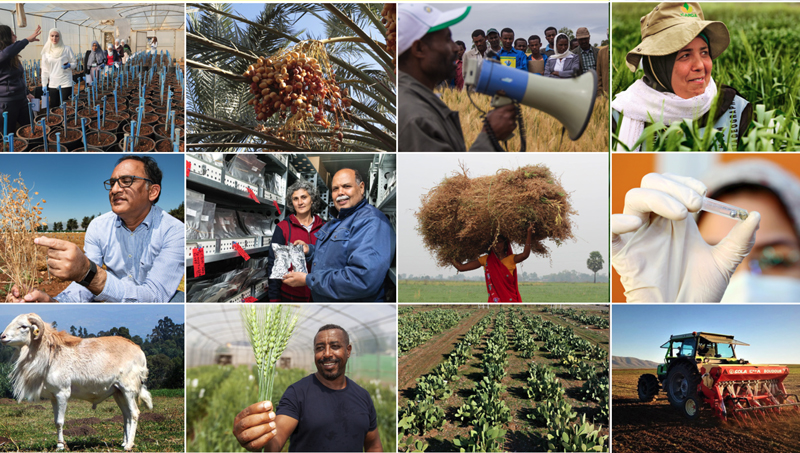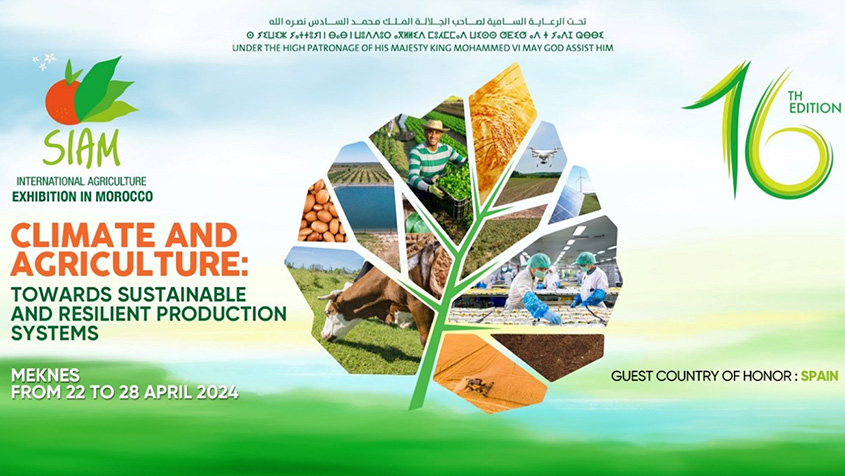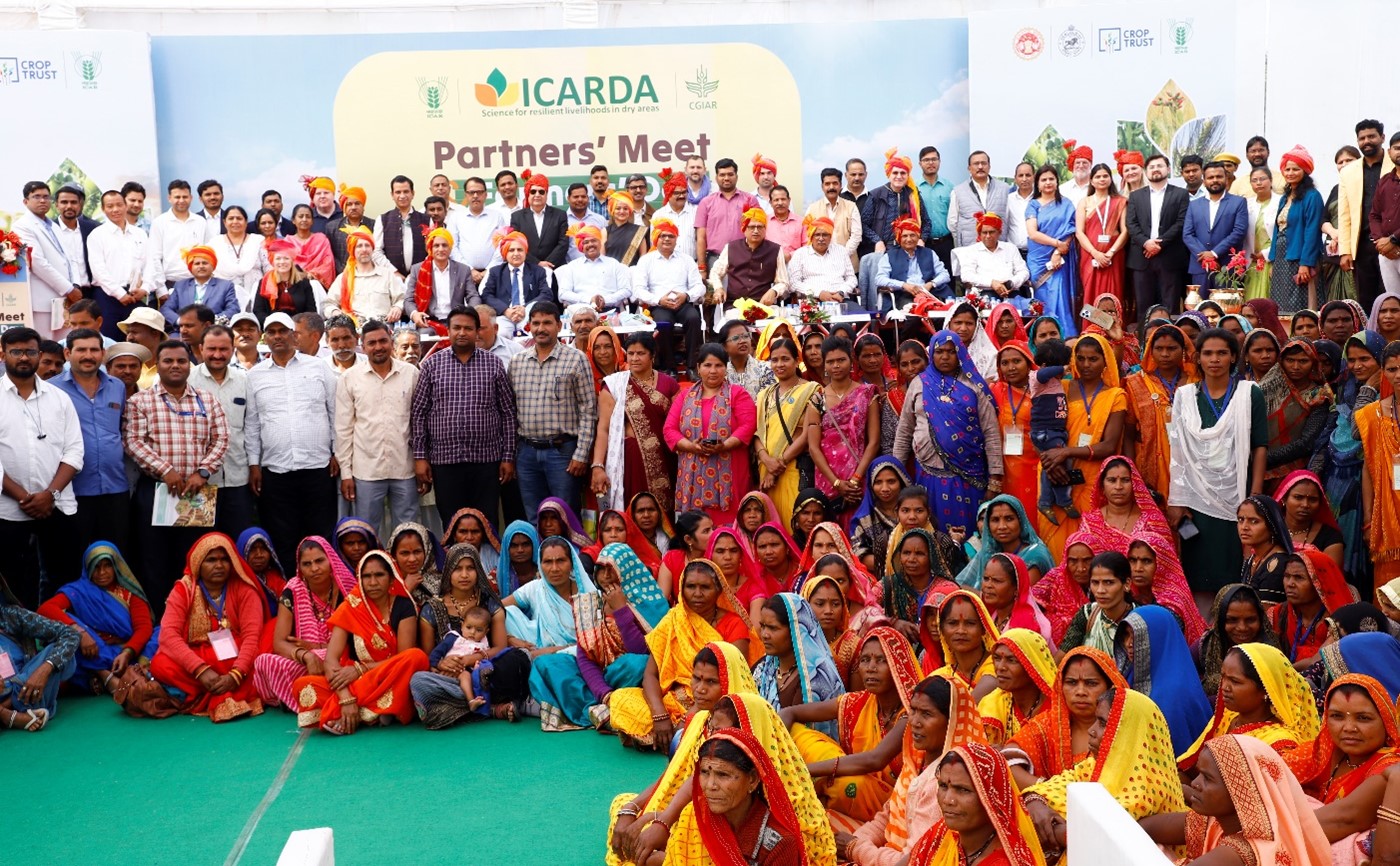Seeds for Life - the ICARDA Morocco Genebank is Inaugurated
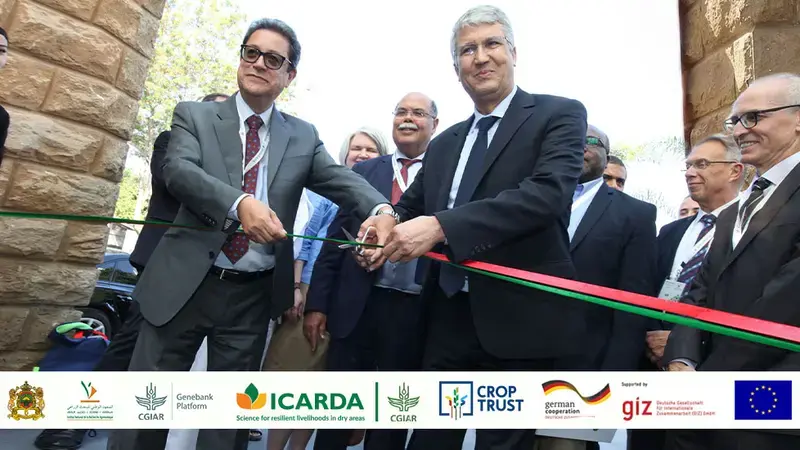
May 18, Rabat, – The ICARDA Morocco Genebank was officially inaugurated today by His Excellency Dr. Mohamed Sadiki, Morocco’s Minister of Agriculture, alongside Aly Abousabaa, CGIAR's Regional Director of CWANA and ICARDA Director-General. Also presenting the event were Dr. Faouzi Bekkaoui, Director of INRA Marocco, Mr. Kent Nnadozie, Secretary of the International Treaty on Plant Genetic Resources (FAO), Dr. Charlotte Lusty Head of Programs Genebank Platform Coordinator, The Crop Trust, and Dr. Sonja Vermeulen, CGIAR Global Director, Genetic Innovation
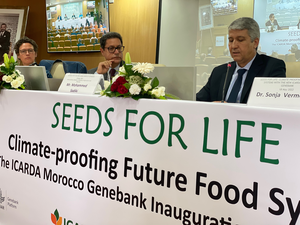
Years in development, this special day highlights how genebanks provide global crop research with vital ‘building blocks’ needed to develop high-yielding, resilient crops that are adapted to increasingly hostile conditions, making the world a safer place by improving food and nutrition security.
“Developing the agricultural sector via genetic resources is crucial for humanity, for present and future generations” - His Excellency Dr. Mohamed Sadiki, Morocco’s Minister of Agriculture, Maritime Fisheries, Rural Development and Water and Forests
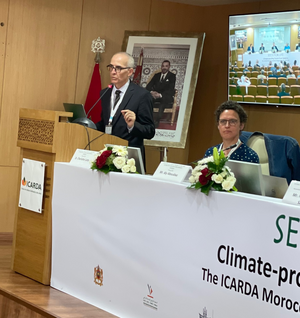
The state-of-the-art facility – developed by ICARDA with the unwavering support of The Kingdom of Morocco, INRA, and the Global Crop Diversity Trust – safely stores one of the world's most unique and extensive collections of wheat, barley, chickpea, faba bean, and lentil. Research into this genetic material also forms the basis of breeding programs to deliver sturdy domestic alternatives to the widely imported staple crops under pressure today.
"Today is a historic day for food security in Morocco & the region. Genebanks are the building blocks of climate-proof food systems" - Dr. Faouzi Bekkaoui - INRA Director
Morocco itself is a stark example of why conservation and research of hardy plants from the region are so important to make future food systems climate-proof. Farmers here are still reeling from the consequences of ‘the drought of the century’ that devastated this year's harvest. Added to the ongoing conflict in Europe which has disrupted cereal imports for many highly dependent countries, including Morocco, it's clear why an overhaul of food systems is urgent, and this begins with strengthening the genebank system.
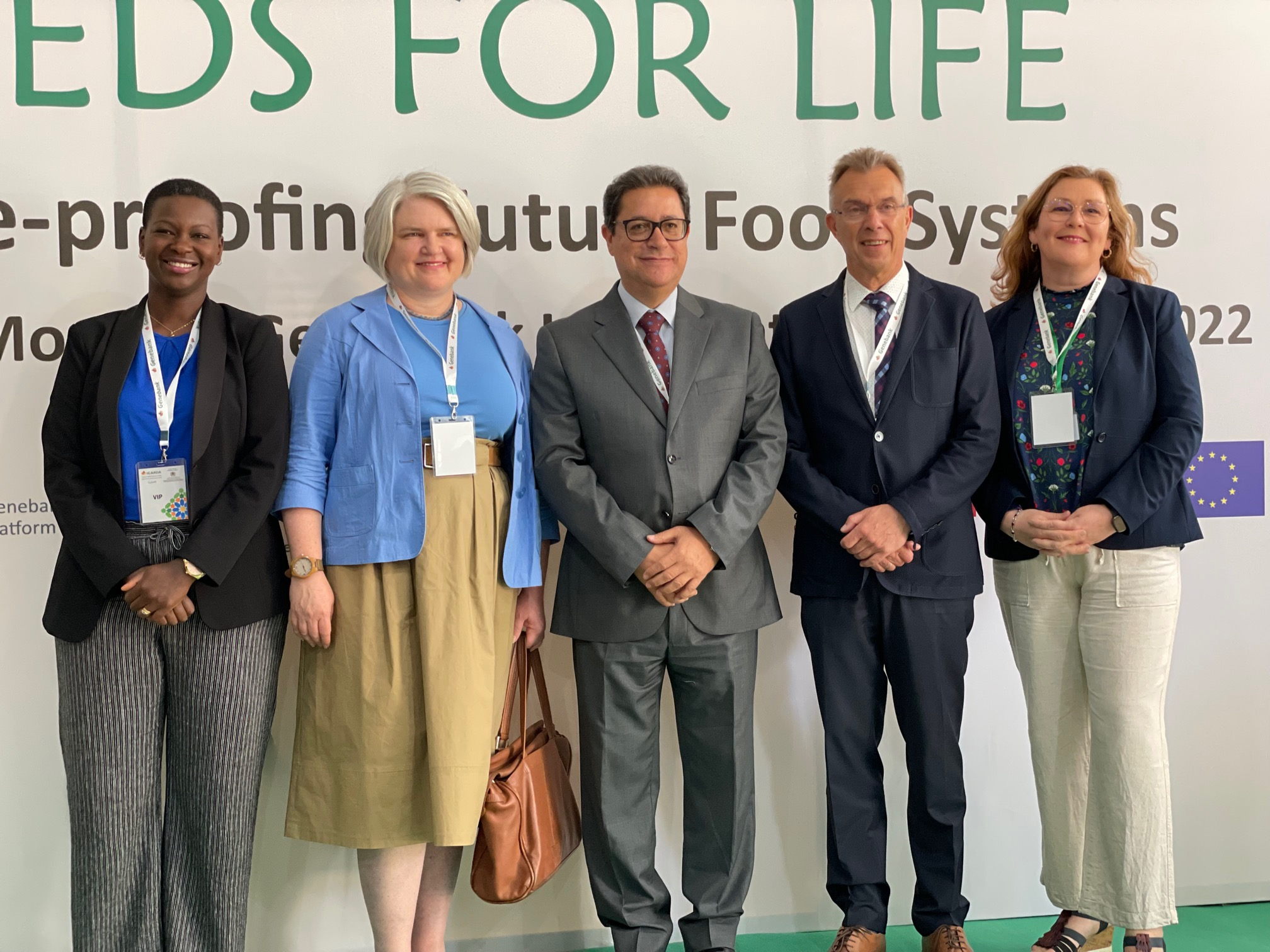
“It is our obligation, in partnership, to capitalize on what this region offers as a living lab, to provide the world with the building blocks for climate-proof food systems” - Mr. Aly Abousabaa CGIAR Regional Director of the Central and West Asia and North Africa Regional Office, and ICARDA's Director-General
Over 150 people attended the ceremony, including officials from the Moroccan government, senior representatives of CGIAR, the Global Crop Diversity Trust and INRA, and key delegates from the region’s National Agriculture Research Systems, farming associations, and the private sector. Leading scientists in the field of genetics, agronomy, and breeding were also present throughout the event as were the forgotten heroes in the genetic resources sector - the genebanks researchers, students, lab assistants, and technicians. Without their contribution, the genebank, and its ongoing work, would not be possible.
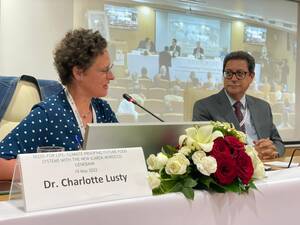
“I’m overwhelmed by the achievement; it is a symbol of what real cooperation has achieved to establish this essential tool in the fight for future-proof food systems” - Dr. Charlotte Lusty Head of Programs Genebank Platform Coordinator Crop Trust
The ICARDA Morocco genebank conserves and researches an impressive collection of 95,000 accessions (groups of plant genetic resources) collected from the region.This plant and seed material is the ancestors of today's crops, that have evolved in the wild along within a harsh environment of heat and water scarcity, and offer the keys to climate-resilient traits that can help strengthen global crops in the face of stresses such as soaring temperatures, pests, and water scarcity. And many of these plants are threatened in the wild.
“Supported by our global partners, the new OneCGIAR’s improved systems help farmers to become more agile in the face of serious and changing challenges” – Dr. Sonja Vermeulen CGIAR Global Director, Genetic Innovation
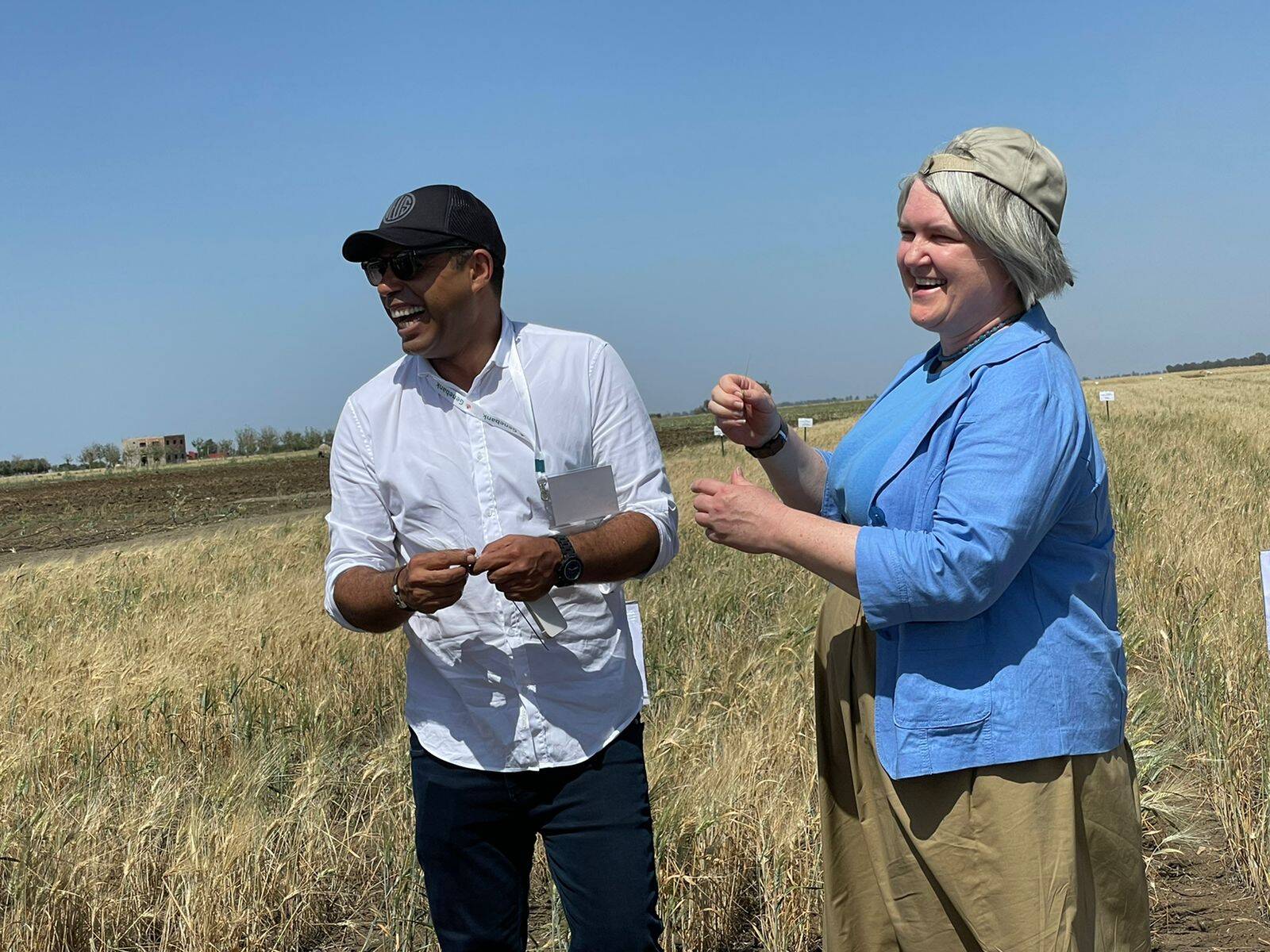
This Genebank is the third that ICARDA has established since the research center was founded in 1977. In the storage rooms of the first genebank that opened in 1989 near Aleppo in Syria, ICARDA conserved a rich collection of 145,000 accessions of cultivated crops originating from the Fertile Crescent and the wider region.
“Today is important in terms of the wealth of genetic diversity CGIAR can now hold. This diversity means that the probability of discovering vital climate-smart traits for breeders is much higher.” – Dr. Zakaria Kehel, Research Team Leader - Genetic Resources, conservation, characterization, and use (GRS), ICARDA.
By 2012, the nearing conflict urged ICARDA scientists to ship duplicates of the vast seed collection to the safety of other reliable genebanks’ vaults - the most well-known being the Svalbard Global Seed Vault in Norway. By then, ICARDA was already in the process of relocating its genebank system to Lebanon and Morocco.
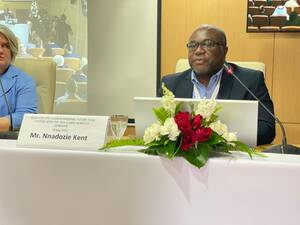
“This genebank is a symbol of the regeneration, resilience, & expertise of the people in this region who are working so hard to build a climate smart future” - Mr. Kent Nnadozie - Secretary of the International Treaty on Plant Genetic Resources (FAO).
Old food systems approaches cannot respond effectively to today’s shifting challengesand will no longer be adequate in twenty, ten, or even five years’ time. Climate change will render them obsolete – both in what we know and don’t know – and other shocks may follow.
ICARDA's genbanks in Lebanon and now Morocco, embedded within the overall CGIAR genebank system, work in tandem to collect important plant specimens from the region and beyond. ICARDA’s Lebanese genebank specializes in conserving cultivated plant species from the area historically known as the ‘Fertile Crescent’ - where agriculture first emerged. Both genebanks work with crop breeders to evaluate and disseminate adapted crop varieties to farmers, global researchers, and breeding programs.
ICARDA's seeds are International Public Goods accessible to all including breeders and researchers across the world. To this day, over 83,000 accessions are available to global breeding programs and researchers, with about 20,000 seed samples distributed every year.
The new ICARDA Morocco genebank is supported by the Kingdom of Morocco, CGIAR Genebank Platform, Deutsche Gesellschaft für Internationale Zusammenarbeit (GIZ) Genebank attributed funding, European Union, and the Global Crop Diversity Trust.

